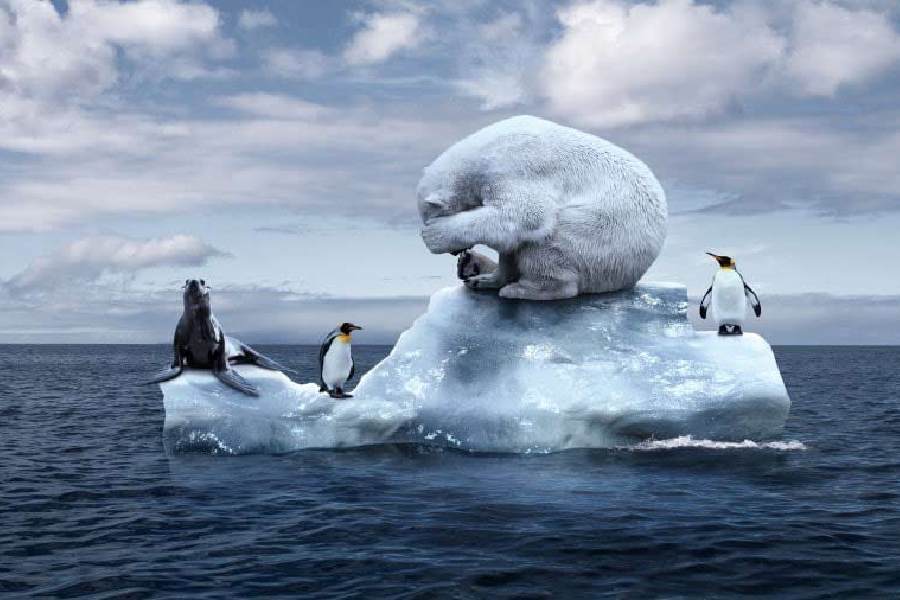California’s fall from grace has been steep and swift, and now even the insurance companies are pulling out. The two biggest American home insurance companies, State Farm and Allstate, announced last month that they will stop selling insurance policies to Californians. Why? Climate change-related wildfires are making it too risky to insure Californian houses.
California, the most populous US state, is now entering the process that began in 1992 when Hurricane Andrew devastated Miami and the big insurance companies fled from Florida. It’s the same pretty much everywhere. As the scale and the frequency of climate-related events grow, big insurers are bailing out of the most seriously affected regions.
That makes short-term sense in terms of avoiding big pay-outs, but they are gradually destroying their own customer base. When they pulled out of the Florida and California home insurance business to protect their balance sheets, they abandoned millions of potential customers. That’s not a great long-term strategy.
This is a market opportunity for people who think in those terms. Most climate scientists don’t, but when they come up with some bright idea for lessening the impact of global heating, they’re bound to wonder who is going to pay for it. The answer may sometimes be the insurance industry. Here are two examples.
Stephen Salter is a Scottish engineer and an emeritus professor at the University of Edinburgh, who has been working on ‘marine cloud brightening’ — a technique for thickening up low-lying clouds over the ocean so that they reflect more incoming sunlight. It’s intended to hold the global temperature down, but first of all, it cools the ocean’s surface. It occurred to Salter that cooling the ocean’s surface in the right places would weaken or even prevent the formation of hurricanes.
Stephen Salter: “If you got a group of governments from, let’s say, the Gulf of Mexico who are worried about the damage from hurricanes...[w]hat you could say is that we will get the sea surface temperature down from 27°C to 24°C, and you pay us on how close we got to 24°C.
“We will have these things cruising around between Africa and the Gulf of Mexico, and, at the end of the hurricane season, you can decide how much of the fee we’ve actually earned. Now that would be a way that could look attractive either to governments or maybe to the insurance companies...”
GD: “So you would do the cooling on the African side of the Atlantic, where most of the hurricanes form...”
SS: “Yes, and that looks to be the most commercially attractive route.”
Another example: John Moore, a glaciologist at the University of Lapland, has an idea for slowing down the speed at which glaciers are sliding into the ocean.
The solution might be to anchor flexible, buoyant plastic curtains to the seabed to steer the warm, deep-water currents away from the glaciers’ mouths. Maybe start with an experiment on a Greenland glacier, but who would pay for that? Certainly not the Greenlanders.
John Moore: “There [are] payments for preservation of old-growth forests ... that people recognise as a global good. So the ice sheet... deserve to have a funding mechanism. One mechanism might be insurance.
“I’ve spoken to insurance companies, and they don’t know...what insurance premium level to set for Florida for hurricanes, because sea level rise adds remarkably to those risk estimates. If you could add a surcharge of something like $10 per year to an insurance premium in Florida, that could totally compensate the Greenlanders for becoming stewards of the ice sheet instead.”
Never trust the fossil fuel companies, but the insurance companies could turn out to be the good guys.










